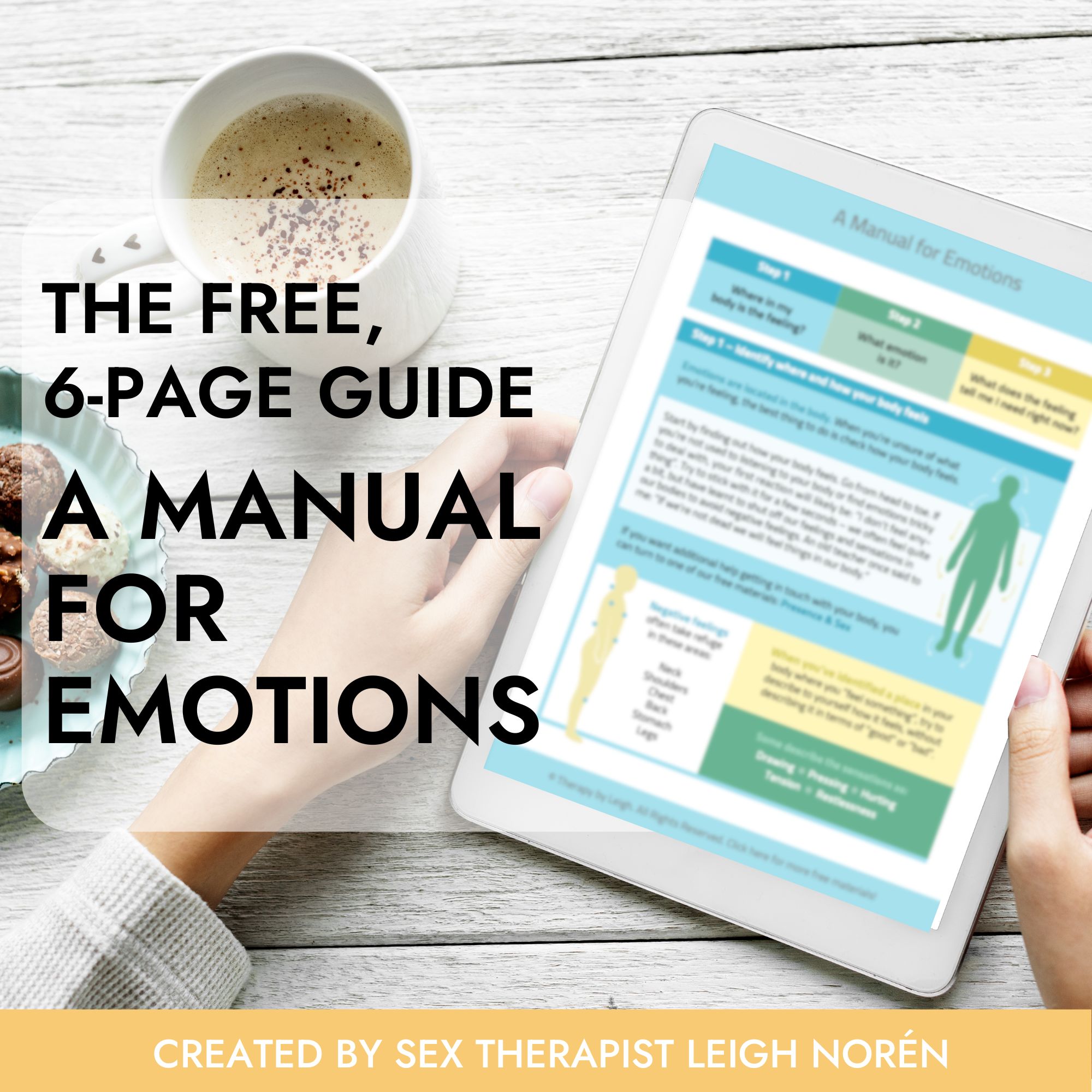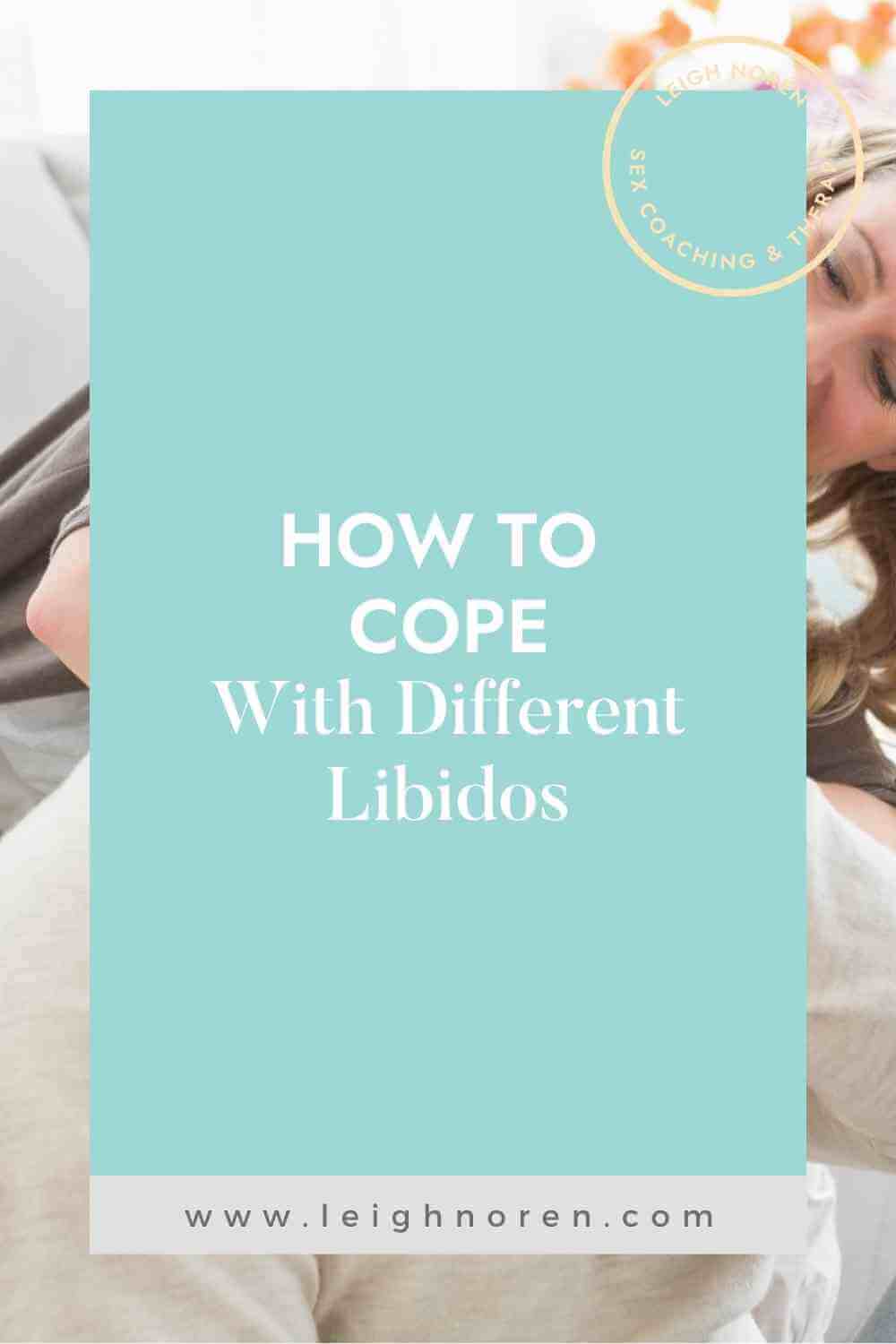5 min read
Emotions control sex. They determine what we want in bed, how much we enjoy sex, and if we even want it at all. As a sex therapist, this is something I remind my clients of all the time. Because it’s easily forgotten.
We’ve been led to believe sexuality is a purely biological entity. That our sexual self is somehow separate from the rest of ourselves.
But the truth of the matter is — your sexuality is deeply intertwined with the rest of you. And this is why sexual problems can hit hard. And hurt.
You are your sexuality
Experiencing sexual difficulties, like finding it hard to orgasm or feeling like your sex drive has vanished, can be tough. Not only because this can cause friction in relationships, but because sexuality is such a fundamental part of our beings.
This can be hard to recognise. After all, if your sex life doesn’t feel problematic or you’re enjoying the sex you’re having — you’re probably not thinking about it most of the time.
As soon as sex becomes difficult, though, it starts to take up more mental energy and affects your everyday emotions. And this effect goes both ways: the more shame, sadness or frustration you experience about a sexual difficulty such as difficulty having an orgasm or low sex drive, the harder they become to resolve.
And the harder they become to resolve, the more they feed into your everyday emotions and affect your general self-esteem.
How emotions control sex
A sexual experience doesn’t exist in a vacuum – it encompasses all of you and all of your emotions. This is partly why sex with the same person is sometimes mind-blowing and other times sex is mind-numbingly boring.
It’s not just the kinds of sex you have or the positions you try that determine if you’re satisfied or not. It’s your thoughts, emotional state, and connection with your partner, that tie into the experience as a whole. And this is true whether you experience sexual difficulties or not.
Here are three of our most common feelings and how they affect our sexual experiences and desire.
Irritability
Irritability is seldom an aphrodisiac.
In fact, for most of us, irritability turns off libido, because irritation fosters boundary-setting – not connection. There are, however, times when you want to have sex with your partner even if you’re feeling annoyed.
While irritability doesn’t have to affect the sexual experience, you’ll probably find it does. Things such as emotional intimacy and even orgasms, can be harder to achieve while having sex and being annoyed. It can also feel more challenging to strike a connection with your partner, or to want to give them pleasure.
Worry
The emotion worry is a prime example of how emotions control sex. When you’re worried, it’s harder to be in the moment. And when your brain is all over the place and focused on potential dangers – it’s harder to get in the mood for sex, or enjoy it.
Your brain is your largest sexual organ. This means it needs to be focused on the things that get you going. If it’s focused on worrying about the kids, how to get a new job, or if your spouse really is enjoying themselves – you’ll probably struggle to enjoy it, too.
By learning how to get out of your head during sex & become more present, you will reduce your worry and anxiety during sex (and generally in life, too!), leading to more pleasure.
Important to note though, is that worry and anxiety don’t always stand in the way of great sex or libido. How much these feelings affect your desire for sex partly depends on your attachment pattern, too. Generally speaking, those with a more anxious-ambivalent style of attachment might find that anxiety actually drives libido, which you can read more about in my blog post on can emotions affect sex drive?.
Happiness
Happiness and joy are all about connecting, getting close and sharing enjoyment together. This helps explain why happiness makes for more desire and better sex.
If you’re happy, you’re more likely to be present in the moment, which means more desire and sexual arousal. This, in turn, might mean more orgasms all-round. Plus which, when you’re happy you’re more likely to want to give and receive pleasure which makes you a more generous partner in bed. And a better one.
WANT TO UNDERSTAND YOUR FEELINGS AND THEIR CONNECTION TO SEX?
My free resource Manual For Emotions gives you the tools needed to understand the connection between sex and emotions and feel better.
Learn about the connection between sex and emotions and how to deal with difficult emotions in this 6-page long resource, and get free sex and relationship tips directly to your inbox. You can unsubscribe at any time.
What this all means if you have sexual difficulties
Because of the link between your emotions and your sexual self – solving sexual problems isn’t necessarily a case of spicing things up. It might be, but it might also be about working with yourself on a deeper level.
Tending to your emotions by:
- Understanding what you’re feeling,
- What role your feelings play in your sexuality,
- Gauging the back and forth effects of your sexuality and your emotions on one another
– is usually a good place to start.
By taking a holistic view of your sexuality and understanding that emotions control sex, and that sex also controls your emotions – you’ll be one step closer to the sex life you want.
If you want more help with removing the sexual pressure and stress, and increasing desire and intimacy, check out my online program, Re:Desire. Based on the powerful combination of 1:1 support and fluff-free video lessons and actionable exercises – it’s the best route to create long-term desire and closeness.




